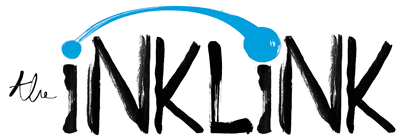Living With The Times
After an initial guide for the Inter-Agency Standing Committee (IASC) and the World Health Organization (WHO) to support essential workers in times of COVID-19 by informing them of the right gestures and attitudes to integrate psychosocial support into their exchanges, The Ink Link has created a new guide, this time aimed at the elderly population.
You can download the posters here, and the companion handbook here.

Conflicts, crises and disasters have a major impact on a person's environment, and can sometimes leave him or her shaken. Psychosocial support then comes into play to prevent and alleviate the psychological injuries incurred as a result of these potentially traumatic events.
The COVID-19 pandemic has had a considerable impact on elderly men and women. They are at greater risk of developing more severe symptoms of the disease, and of dying as a result. This increased risk is partly due to age-related changes in the immune system, making it more difficult to fight off disease and infection. Elderly people are also more likely to have underlying health problems, such as lung, kidney, cardiovascular or cerebrovascular disease, or cancer, and to be taking several concurrent medications that make it more difficult to manage and cure COVID-19.
The project
With this in mind, the Inter-Agency Standing Committee and the World Health Organization, together with The Ink Link, have created the Living with the Times guide, which aims to share recommendations for older people around the world, to help them look after their own well-being and that of their loved ones, during the pandemic and beyond.
Initially, experts from the partner organizations suggested illustrating some forty recommendations in the form of cards. The Ink Link team then offered a different approach. It was clear that an elderly person, with potential memory problems, would not be able to retain so much information in this format. To facilitate memorization, The Ink Link invented a tool based on two principles:
- Reading as part of an exchange: a support person (family, home help, care assistant, medical staff, etc.) asks the elderly person questions, and the latter is asked to formulate the answers aloud (which facilitates memorization).
- Active reading: the person has to find solutions in an image, so they are no longer contemplative, but active in their reading.
In the form of a toolbox, the guide includes a series of posters with key phrases for the elderly, as well as advice for those caring for the elderly during a crisis.
The Ink Link has asked Wouzit to create five posters, which can be printed or displayed on a screen. Each poster answers one of the following questions:
- How can I stay healthy?
- What can I do to improve my mood?
- How can I stay connected to my family and friends?
- Where can I find help if I need it?
- How can I cope with grief and loss?





A total of 199 people aged between 60 and 90 from 51 different countries took part in the development of the toolkit. The posters were tested with elderly people from different countries and from different social, cultural and economic backgrounds.
Wouzit's style, with its colorful palette and cheerful atmosphere, was approved thanks to these preliminary studies. The resulting posters make the message easy to understand for everyone, inviting conversation and action. They are specifically designed to meet the needs of the elderly.
